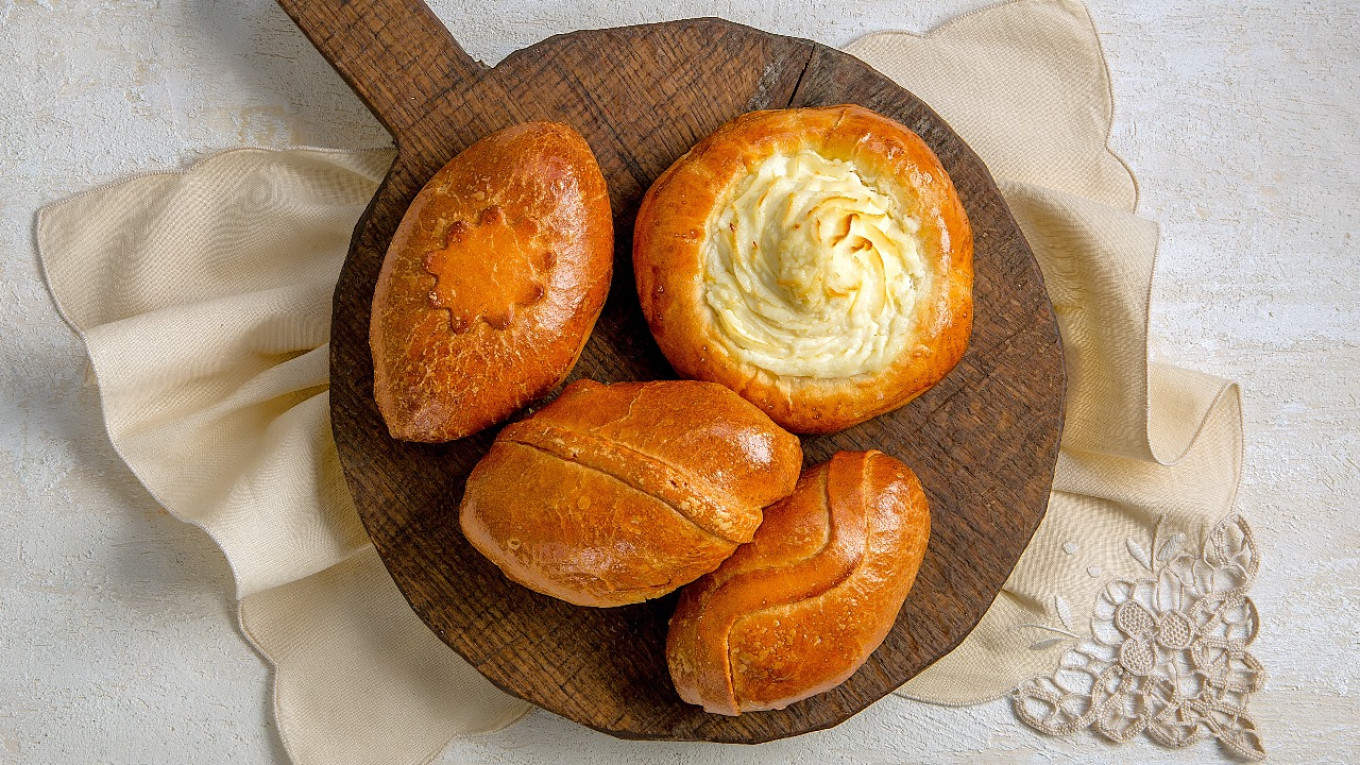The opening of the Olympic Games not only makes us cheer for the athletes, it also makes us reminisce a bit. Looking back on the few weeks in July-August 1980 when the Soviet Union hosted the Olympics, we can see that Moscow finally had the ideal public catering that “the Bolsheviks had been talking about for so long.” The Moscow Olympics were a sweet fairy tale for many Muscovites. Alas, it did not last.
The USSR put everything into preparations for the 1980 Olympics. They spent three years building the Olympic Village, which had four cafeterias with 1,000 seats each, along with several tea houses and cafes, and a restaurant of Russian national cuisine. The athletes were served by teams from the best Moscow restaurants: “Moscow,” “Ukraine” and “Prague.” Brigades of cooks from 14 regions of the country were brought to the capital to help their Moscow colleagues.
Naturally they needed to make a new production infrastructure for this to work. Twenty-two factory-kitchens were built in Moscow, all equipped with high-performance equipment, product storerooms and warehouses. More than 30,000 cooks and confectioners were involved. Special menus, product names and new dishes were developed and approved. In one sense, the Main Directorate of Public Catering of Moscow performed a small miracle: it built in one city something close to the ideal of the socialist system.
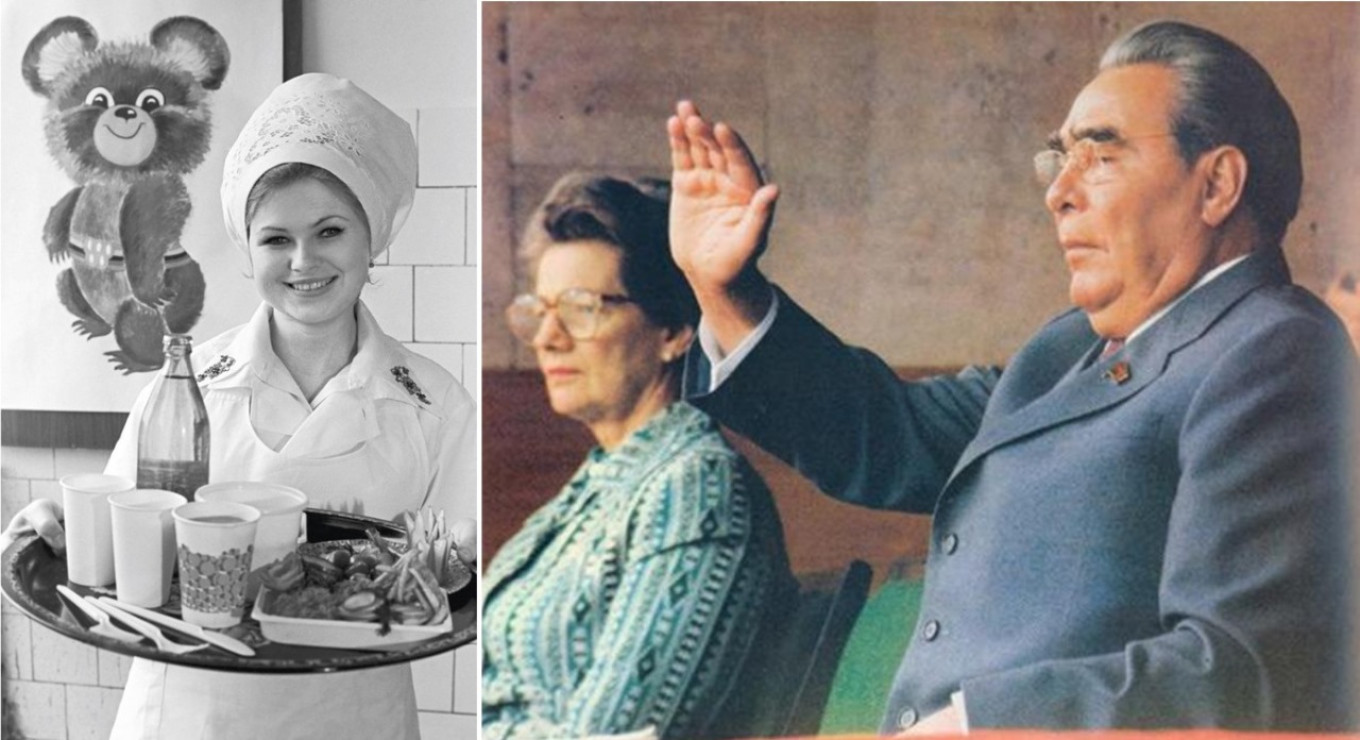
One of the people responsible for public catering was Alexander Kuprikov, who was at the time the chief culinary expert in Moscow. In their book “The True History of Soviet Cuisine” Olga and Pavel Syutkin quote an interview with him, a man who was direct and spoke without a glance at the authorities. The interview was not politically correct about the former Soviet system. But of course, that makes it even more interesting.
“We began preparations for the Olympics back in 1977-1978,” he said. “I was completely responsible for developing the menu. We had absolutely no literature, no information — nothing. We invited the chef who served the athletes in the 1976 Munich Olympics. When he began to get down to the details — and this was when there was an iron curtain — the head of the Moscow catering department, Nikolai Zavyalov, said: ‘Listen, you guys — what are you talking about: artichokes, asparagus? We don't have them! Take this German away!’ But the bosses decided to try it anyway.
“Vladimir Promyslov (Chairman of the Executive Committee of the Mossovet, in modern terms, the Mayor of Moscow) called on Zavyalov along with Alexander Struyev, the USSR Minister of Trade. The three of them went to the Voronezh region and ordered a field to be planted with artichoke and asparagus seeds. After some time, they returned to see the results. Something was growing. But asparagus is harvested when it just emerges from the ground. There were bushes! The collective farmers bragged: ‘Here's the asparagus we've grown for the Motherland — it'll be waist-high!’
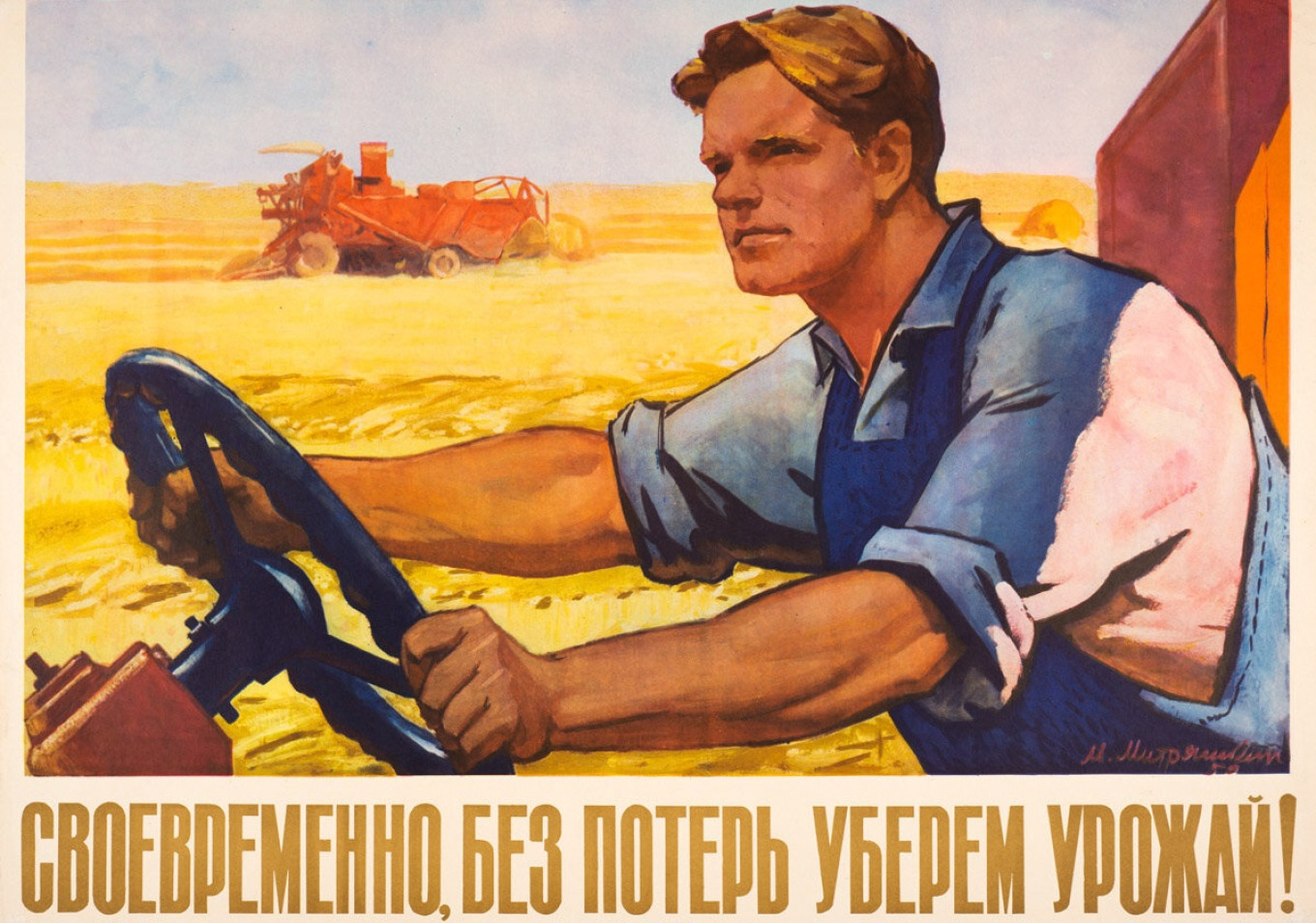
“Then they went up to the tractor driver ‘incognito’ and casually asked: ‘So, how’s it going?’ ‘Not bad," he said. 'Just show me the smart guy who ordered that the whole field be planted with those weird green cones!" He had a few other things to say about that smart guy. The chiefs stammered, looked at each other and went on their way. In short, all did not go well with asparagus and artichokes. ‘Let's forget about this,’ Zavyalov said. ‘Without outside help, we simply can't manage.’
“In the end,” Kuprikov told us, “we went to the Finns, who supplied us with their products: butter, cheese, honey, juice. And of course, they tried to sell us as much as possible for higher prices.
“At about that time, we met with the McDonald's managers in their headquarters. The Americans said, ‘We can put up a 500-seat restaurant in 14 days.’ The two of us — Zavyalov and I — simply could not believe it. It sounded like a fantasy. We said, ‘That can’t be. Bring us some samples of what you’re serving.’
“So they brought hamburgers. One of the McDonald's executives, George Cohon, served us. I asked him, ‘What fillers do you put in the meat?’ He said, ‘Well, of course we have company secrets.’
“Zavyalov is already whispering to me, ‘If we took this to the sanitary and epidemiologic service [with no information], we’d end up in court.’ So we forgot about McDonald's.
“Instead, we frantically launched a project to build temporary cafeterias. That's when these prefabricated pavilions appeared in Moscow — and some of them are still here to this day as cafes.”
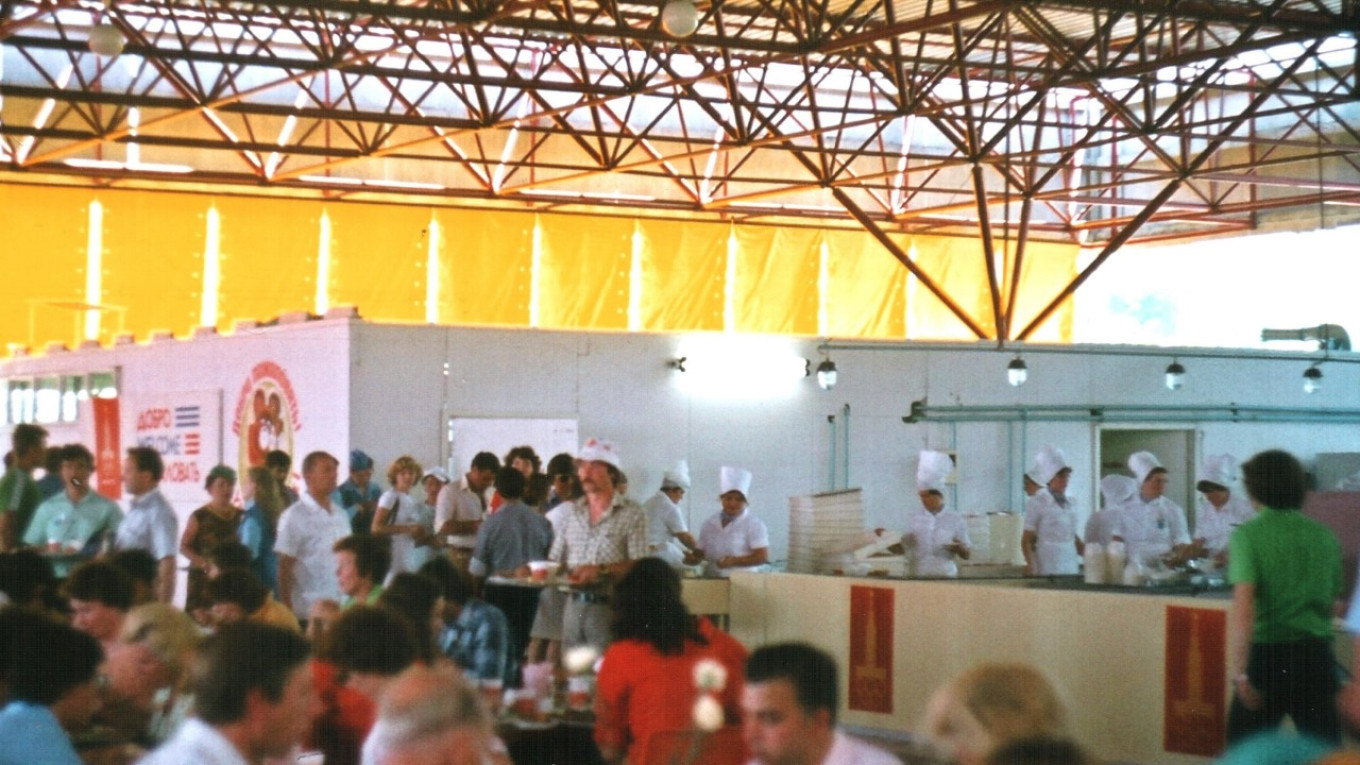
“We had to feed about 11,000 athletes — and then almost as many service personnel: coaches, doctors and assistants. Then at the very last moment I asked Zavyalov, ‘How many police and security guards will there be? Where will they eat? What are they going to do — put a sandwich in their holster?’ It turned out that they had forgotten about them! Near the Olympic Village they quickly — literally in two weeks — put up two prefabricated canteens for 600 people. They put in serving lines, but no one knew how it would work. I told Zavyalov, ‘Get some military units from the Defense Ministry — have them send several hundred soldiers for lunch so we can test it. You’ll have to figure out how to explain why we need to use the food stores. My job is to feed them quickly.’
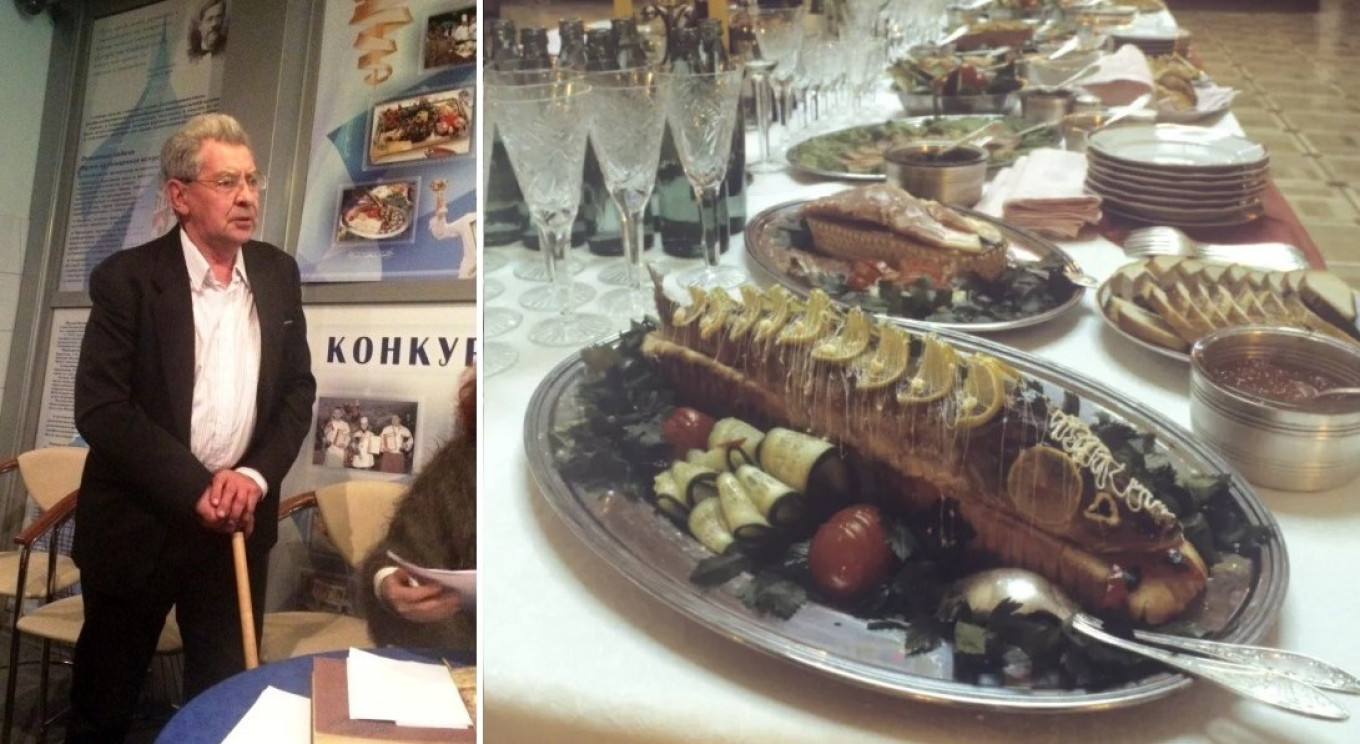
“Two temporary pavilions were built near the Sokol metro station. They brought in a few dozen buses filled with soldiers. We told them to eat lunch at the same time. You can push, try to get ahead, make a fuss. And each of you has to go up to wash your hands and dry them on a towel first. When the crowds came in and we turned on the equipment at full power, our poor department head was frantic. ‘Alexander! What are you doing? We're going to blow the circuits!’ ‘Let them blow!’, I said. ‘If they blow during the Olympics, I'll be skinned alive. But now, let them blow!’
“When we managed to feed 400 people in fourteen and a half minutes, that's when we believed we could pull this off! The Olympics were only a few days away.
“The sad irony of fate was that this ideal system did not last very long. That is, the buildings — restaurants, cafes, food storage centers and warehouses — still work in Moscow. But the showcase — the high point — of Soviet public catering collapsed after a year or two. The decline in agricultural production, which began in the late 1970s, led to a total shortage of food products in a few years.”
But even in the most difficult times, Russian cuisine has dishes that no one was embarrassed to serve on the Olympic menu. Even without artichokes and asparagus.
Pirozhki with Green Onions and Boiled Eggs
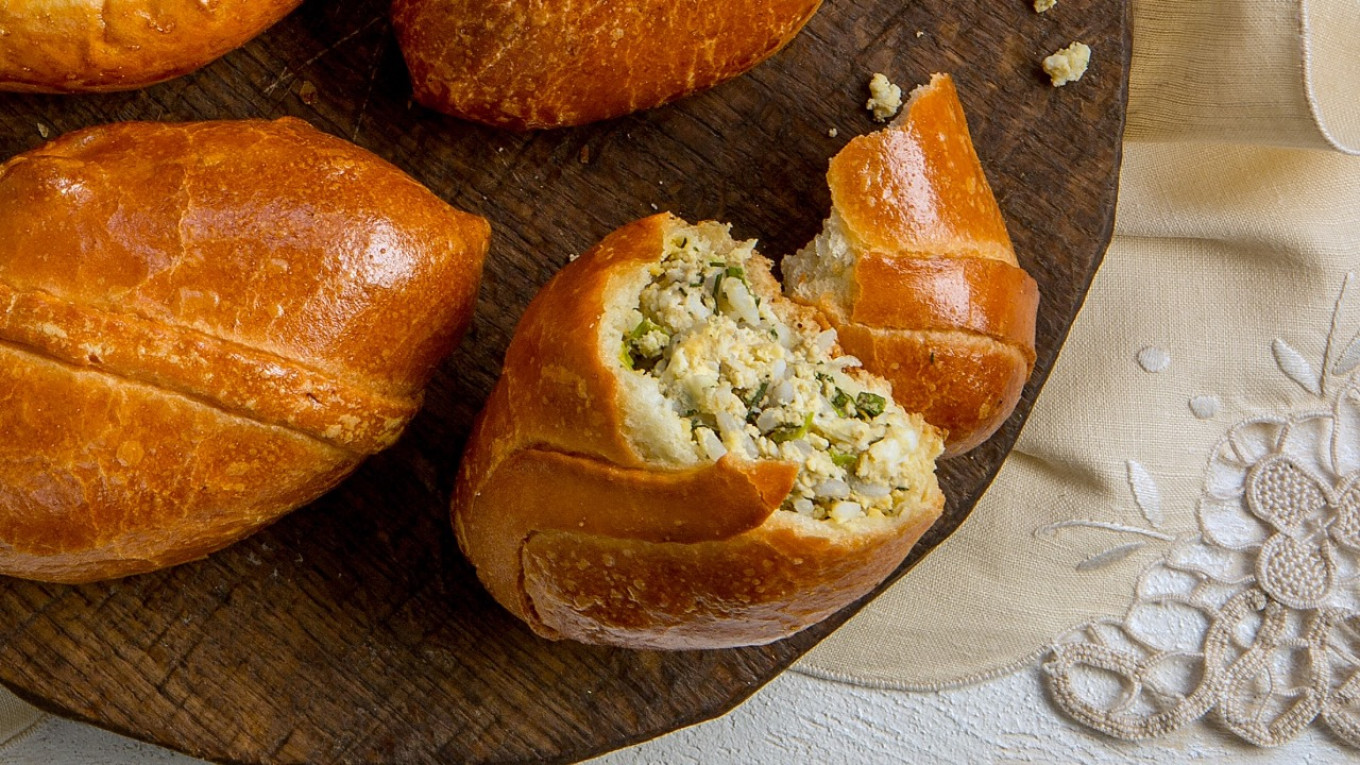
Ingredients
For the dough:
- 250 g (4.5 oz or 2 c) flour
- 3 g (.1 oz or ¾ tsp) salt
- 130 ml (1/2 c) milk at room temperature
- 7 g (.25 oz or scant Tbsp) compressed yeast
- 25 g (.88 oz or 2 Tbsp) sugar
- 2 egg yolks
- 20 g (.7 oz or 1 ½ Tbsp) butter
for the filling:
- 150 g (5 oz) green onions (scallions)
- 3 eggs
- 2 tsp salt
- 30 g (1 oz or 2 Tbsp) soft butter
Egg wash:
- 1 egg
- 1 Tbsp milk
Instructions
- Dissolve the yeast in the milk and add a pinch of sugar. Let stand for 20-25 minutes until it begins to foam. This means that the fermentation process has started.
- Add salt, sugar, yolks to the milk with yeast and stir until sugar and salt dissolve.
- Pour the flour into the bowl of the food processor and then add the liquid mixture. Mix on the first speed for 4-5 minutes.
- Add the butter a little at a time and knead on 2nd speed until smooth and gluten has developed —about 13-15 minutes. The dough can also be kneaded by hand.
- Allow it to rise for 2.5 hours, kneading once at 40 minutes and a second time after 90 minutes from the very start of fermentation (the first step above).
- While the dough is rising, prepare the filling.
- Finely chop the green onions and salt them. Hard-boil the eggs, cool and chop finely.
- Gently squeeze the onions, drain liquid. Mix onion, eggs and butter. Salt to taste.
- Divide the dough into 12 portions, roll into balls and leave for 10-12 minutes.
- Roll out the patties into circles, put some filling in the middle, seal the edges well and form patties. Place them seam-side down on a baking tray lined with baking paper. Leave to proof for 50-60 minutes.
- Preheat the oven to 180°C / 355°F.
- Prepare the egg wash. Mix egg and milk with a fork and brush over the patties.
- Bake the pirozhki in the preheated oven for 12-15 minutes.
A Message from The Moscow Times:
Dear readers,
We are facing unprecedented challenges. Russia's Prosecutor General's Office has designated The Moscow Times as an "undesirable" organization, criminalizing our work and putting our staff at risk of prosecution. This follows our earlier unjust labeling as a "foreign agent."
These actions are direct attempts to silence independent journalism in Russia. The authorities claim our work "discredits the decisions of the Russian leadership." We see things differently: we strive to provide accurate, unbiased reporting on Russia.
We, the journalists of The Moscow Times, refuse to be silenced. But to continue our work, we need your help.
Your support, no matter how small, makes a world of difference. If you can, please support us monthly starting from just $2. It's quick to set up, and every contribution makes a significant impact.
By supporting The Moscow Times, you're defending open, independent journalism in the face of repression. Thank you for standing with us.
Remind me later.



